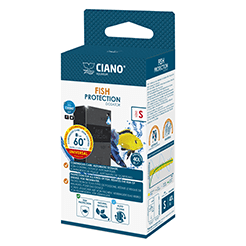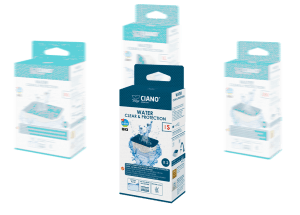Code of Conduct
Purpose and Field of Application
The Code of Conduct of Cianoaquarium, S.A., henceforth CIANO, is a document that includes a set of principles that govern its activity and a set of rules of an ethical and deontological nature to be observed by the respective members of the Governing Bodies and by all Employees in their relations with Clients and Suppliers. It is also aimed at third parties hired by or acting on behalf of CIANO, in cases where the latter may be held responsible for their actions.
This Code is therefore based on the following general principles that define CIANO’s ethical behavior.
- Our operations are carried out from an ethical and responsible perspective.
- Persons or entities that maintain, directly or indirectly, any type of employment, economic, social and/or industrial relationship with us are treated fairly and with dignity.
- Our activities are carried out with respect for the environment.
- All manufacturers and suppliers must fully comply with these commitments and undertake to ensure that the standards set out in the Code are met.
1. Forced Labour
- a) The use of any type of forced or involuntary labour is not permitted.
- b) Workers may not be required to pay any kind of “deposit”.
- c) No workers’ identification documents will be retained.
2. Child Labour
The direct or indirect use of child labour is not permitted. The minimum age for admission is 16 years old and with the minimum compulsory schooling completed (with the exceptions provided for by law).
The hiring of trainees under and over the age of 18 must be conducted in accordance with the law and this Code.
If suppliers identify the existence of child labour in their operations, they must implement an action plan that effectively resolves the situation and takes the child’s well-being into account.
3. Discrimination
- a) All workers are treated with dignity and respect.
- b) No discriminatory behavior shall be perpetrated or permitted with regard to employment practices, remuneration, access to training and hiring based on race, nationality, religion, disability, gender, age, sexual orientation, political association or affiliation, or any other situation.
4. Freedom of Association
Respect for the right of workers to associate, organise or bargain collectively is guaranteed, without suffering any kind of sanction.
When national legislation restricts these rights, suppliers must adopt alternative means to facilitate worker representation.
5. Disciplinary Measures, Harassment and Abuse
Under no circumstances should the use of physical punishment, sexual/racial harassment, physical and psychological abuse and/or any other type of harassment/intimidation be permitted.
6. Working Hours
Everyone must comply with the applicable legislation and the respective sector’s rules on hours worked.
7. Remuneration
The minimum monthly wage must be guaranteed to all workers, as well as payment for overtime work under the legally defined terms.
Wage deductions other than those permitted by law are not permitted.
Wages must be paid monthly by the last day of the month.
8. Employees
- a) In carrying out their duties, CIANO employees must act in accordance with the principles of legality, good faith, responsibility, transparency, loyalty, professionalism and confidentiality.
- b) CIANO employees must adopt a proactive attitude in the pursuit of excellence, seeking and sharing knowledge and information, cultivating team spirit, based on relationships of trust, respect for the hierarchical structure existing in the company, and acting with integrity and dignity in their relationships with each other.
- c) It is forbidden to obtain personal benefits, advantages or favours by virtue of the position held or duties performed by employees, and they may not negotiate on their own account or in competition with CIANO.
- d) CIANO employees are prohibited from accepting gifts and/or any benefits for themselves, their family members or in favour of third parties, with the exception of those of symbolic value. Likewise, CIANO employees are prohibited from offering, giving or receiving any gift or payment to third parties that is or could be considered a bribe or any form of corruption.
- e) Employees must avoid situations that could give rise to a conflict of interest by intervening in decision-making processes that directly or even indirectly involve entities with which they collaborate or have collaborated, or natural persons to whom they are or have been linked by ties of kinship or affinity of any kind. If they are unable to do so, they must immediately report the existence of these relationships. Furthermore, they must refrain from exercising any functions outside the company, whenever such activities jeopardise the fulfilment of their duties.
- f) CIANO employees are subject to the duty of confidentiality with regard to all information concerning the company’s activities, except for information that is public knowledge or constitutes a notorious fact.
- g) Failure to comply with the provisions of this clause will constitute a serious offence, liable to disciplinary or other legally applicable sanctions, namely administrative, civil or criminal, and may eventually lead to the termination of existing contractual ties.
9. Subcontracting
Our manufacturers and subcontractors may only carry out their production in factories or establishments expressly authorised by CIANO.
10. Fair Competition
We guarantee respect for the rules of fair competition defined by the applicable legislation.
Dumping is expressly prohibited.
11. Health and Safety
11.1 Work Environment
- a) All employees are guaranteed a safe and healthy working environment, namely by complying with the applicable laws and regulations.
- b) Good health and safety practices will be promoted to prevent accidents and risks to workers’ health.
- c) All workers are guaranteed access to hygienic toilets and drinking water.
CIANO expects suppliers’ operational and management systems, as well as their employees, to work to prevent occupational injuries and illnesses.
11.2 Product Quality and Safety
All products supplied and services provided by suppliers must meet the quality and safety standards required by law. Whenever they do business with or on behalf of CIANO, suppliers must fulfil the quality requirements established by CIANO.
12. Environmental Sustainability
12.1 All manufacturing activity will be carried out with respect for the environment, in compliance with applicable legal and regulatory standards and adopting the necessary measures to reduce and compensate for its impact.
12.2 Suppliers must fulfil all legally applicable environmental requirements and provide proof of the continuous improvement of their environmental performance.
- a) Environmental Licences and Reports
The supplier must make every effort to obtain, keep up to date and closely follow the guidelines for reporting all required environmental licences and that the records are always in compliance with legal requirements.
- b) Environmental Management System
The supplier must document and implement an appropriate environmental management system (based on international standards) designed to identify, control and mitigate significant environmental impacts.
- c) Hazardous Materials and Product Safety
The supplier must identify hazardous materials, chemicals and substances and ensure their correct use, movement, storage, recycling, reuse and disposal. All legislation and regulations in force relating to hazardous materials, chemicals and substances must be scrupulously respected.
The supplier must fulfil the requirements regarding material restrictions and product safety laid down in the applicable legislation and regulations.
The supplier must ensure that its employees are trained and aware of the practices used for product safety.
- d) Resource Consumption, Pollution Prevention and Waste Minimisation
The supplier must optimise its consumption of natural resources, including energy and water. It must implement and prove viable measures to prevent pollution and minimise the generation of solid waste, wastewater and atmospheric emissions. Before discharging or disposing of waste, the supplier must characterise and treat wastewater and solid waste appropriately and in accordance with current legislation and regulations.
13. Data Privacy and Data Protection
- a) CIANO guarantees that the personal data entrusted to it will be strictly used for the purposes for which it was collected and will not be communicated to third parties, except when there is a need for such transmission in the execution of a contractual relationship or in fulfilment of legal obligations.
- b) CIANO has implemented appropriate and effective technical and organisational measures in order to guarantee the integrity of the personal data collected, namely through material and technological means that allow it to be known, stored, used, transmitted and destroyed. This guarantee extends to its service providers, who have been rigorously selected and are required to comply with legal obligations and the guidelines issued by CIANO with regard to data processing.
- c) CIANO retains the data transmitted to it for the period of time necessary to fulfil the purposes for which it was collected, without prejudice to the need for retention inherent in the fulfilment of legal obligations.
- d) CIANO has created the conditions for the holders of personal data to be able, at any time and free of charge, to exercise their rights of access, rectification and, within legal limits, erasure, opposition, limitation of processing and portability.
14. Corporate Bodies
CIANO’s Governing Bodies will ensure that the necessary measures are implemented to comply with this Code of Conduct, assessing their sufficiency and suitability.
15. Compliance with Applicable Laws
Compliance with applicable legislation is guaranteed in all matters not covered in the previous points.
The provisions of this Code only constitute minimum standards.
If national regulations or any other applicable or assumed commitments, including collective labour agreements, govern the same issue, the provision that offers the greatest protection to workers shall apply.











